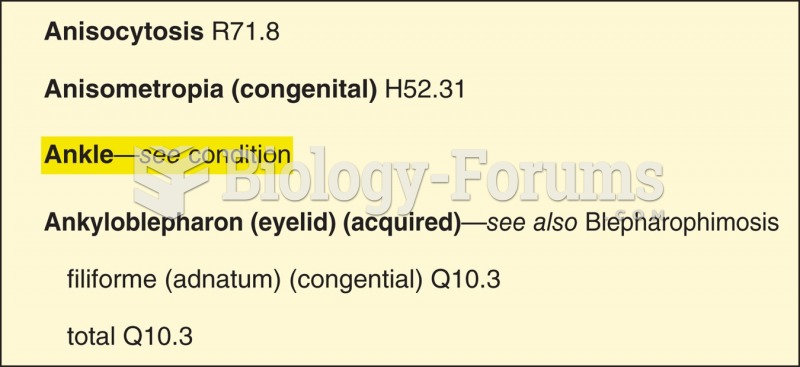|
|
|
The people with the highest levels of LDL are Mexican American males and non-Hispanic black females.
The most destructive flu epidemic of all times in recorded history occurred in 1918, with approximately 20 million deaths worldwide.
Congestive heart failure is a serious disorder that carries a reduced life expectancy. Heart failure is usually a chronic illness, and it may worsen with infection or other physical stressors.
Illness; diuretics; laxative abuse; hot weather; exercise; sweating; caffeine; alcoholic beverages; starvation diets; inadequate carbohydrate consumption; and diets high in protein, salt, or fiber can cause people to become dehydrated.
Not getting enough sleep can greatly weaken the immune system. Lack of sleep makes you more likely to catch a cold, or more difficult to fight off an infection.
 Some scholars regard Walt Whitman as a poet of nature, and others, a poet of the body—a reference to
Some scholars regard Walt Whitman as a poet of nature, and others, a poet of the body—a reference to
 Calculation of body mass index. To determine your BMI, find the value for your height on the left ...
Calculation of body mass index. To determine your BMI, find the value for your height on the left ...





